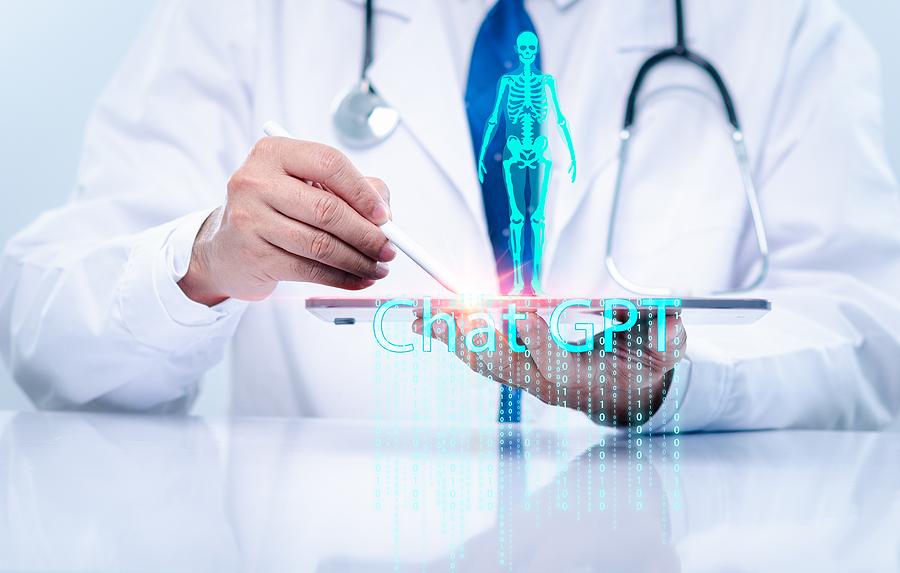Do You Really Need a Doctor?

Physicians commit years to learning and training, so that they have the knowledge and skills to diagnose, treat, and care for patients. Their education is continuous, as new medicines, new treatments, new information require constant attention.
When patients and their families have appointments with a physician, they expect expertise that is the result of this rigorous preparation. Doctors know things that people don’t know. Just like when you take your car to a mechanic, you have to trust that your doctor or expert will provide you with the information you seek and the solution to your problem.
Along Came Google
For a long time, there were few ways for a layperson to get additional information about a symptom, condition, diagnosis, or treatment. And then came Google. Suddenly, we had access to a convenient, efficient, and accurate search engine—a triple threat. There aren’t many people in the U.S. who haven’t used Google to seek answers to their most pressing questions. We expect instant information and gratification from our queries, and most of the time, we get what we ask for.
Thus, it should come as no surprise that we tend to turn to Google when we are ailing. After all, Google can shed light on what the rash on our arm might be or what might be causing our intestinal symptoms. Google certainly is no substitute for a healthcare provider’s expertise, and it is dependent on the quality of the information that is available.
Nevertheless, having access to this tool has certainly enabled laypeople to become more active in their medical care and treatment. Patients are now better able to understand an illness, formulate questions for healthcare providers, and advocate for appropriate care. Good doctors welcome the opportunity for dialogue that Google provides (even if that means explaining why Google is wrong). Unfortunately, some doctors get upset when patients mention things they have learned from Google. Those doctors are too caught up in their own egos to “waste time” talking with patients about what they have learned on their own. Their attitude is that patients should not confuse Google with their hard-earned and expensive medical degree.
But patients rarely use Google as a doctor substitute. They understand their doctor is still the expert. They use Google to help understand their condition better and to become more involved in their own healthcare journey. When push comes to shove, they follow their doctor’s advice, not Google’s.
And Then There Were Symptom Checkers
Symptom checkers emerged as the next technology that used AI (artificial intelligence). Found on apps and on healthcare websites, these tools were designed to help people who have questions or concerns related to their health. Type in a question, and get a response that offers a potential diagnosis and a recommendation for treatment.
Symptom checkers, when analyzed, proved to be correct about half the time. When physicians were given the same patient information, their diagnoses proved to be correct 84% of the time (or, in the silo we work in: incorrect 16% of the time). Still, overall, doctors for the win.
Enter ChatGPT-Assisted Diagnosis
Recent technological innovations with ChatGPT-assisted diagnosis, however, have the potential to shake up the landscape dramatically. In their article, “ChatGPT-Assisted Diagnosis: Is the Future Suddenly Here?”, Hailu, Bean, and Mehrotra explain how this chatbot “has the potential to be a gamechanger.”
Using the same method—providing 45 different scenarios to ChatGPT— ChatGPT “listed the correct diagnosis within the top three options in 39 of the 45 vignettes.” In other words, this tool is 87% accurate. While that’s not exactly the same thing as making the correct diagnosis, it is still quite impressive. Odds are ChatGPT and other AI technology will continue to improve their diagnostic accuracy over time.
Now What?
It is clear there is a great deal of potential with the latest leap forward in technological innovation. Of course, the sample size of this recent published review was small, and the fact remains that the tool is only as good as the information it has on hand, from both the users’ questions and the billions of online textual resources the AI has been “fed.”
Where does this leave healthcare? Will doctors embrace the accuracy and the potential for ChatGPT to reduce or even eliminate misdiagnoses? Will ChatGPT make a visit to the doctor obsolete? What will happen when a physician and ChatGPT disagree? These questions, and more, are yet to be answered.
Whatever the case, we must be mindful of and responsive to the unintended consequences—both positive and negative— that are bound to reveal themselves as the use of AI, and ChatGPT in particular, becomes more widespread.
At The Eisen Law Firm, we understand both the medicine and the law that goes into a medical malpractice case. How will the laws keep up with the changing medical landscape? Only time will tell, but you can bet that we will stay abreast of all the changes that affect medical malpractice cases. After all, that is all we do. We help patients who have been harmed unnecessarily. Don’t hesitate to contact us and schedule your free consultation. Call 216-287-0900 or contact us online today.




